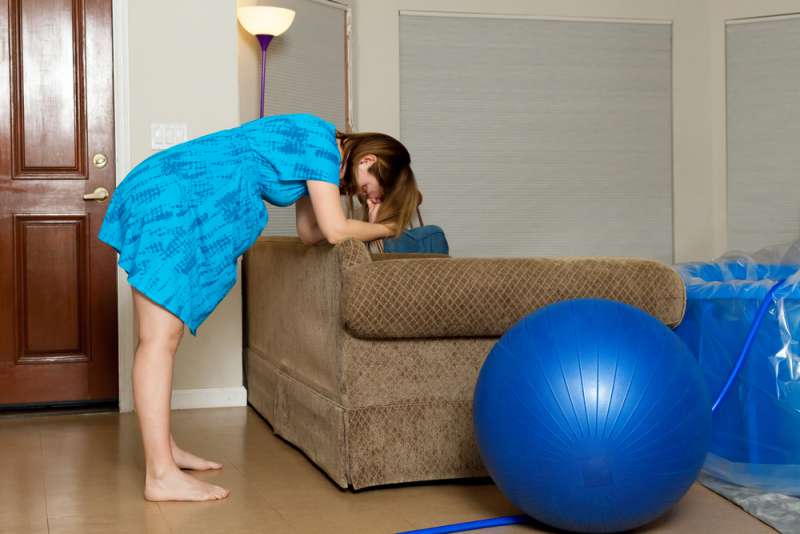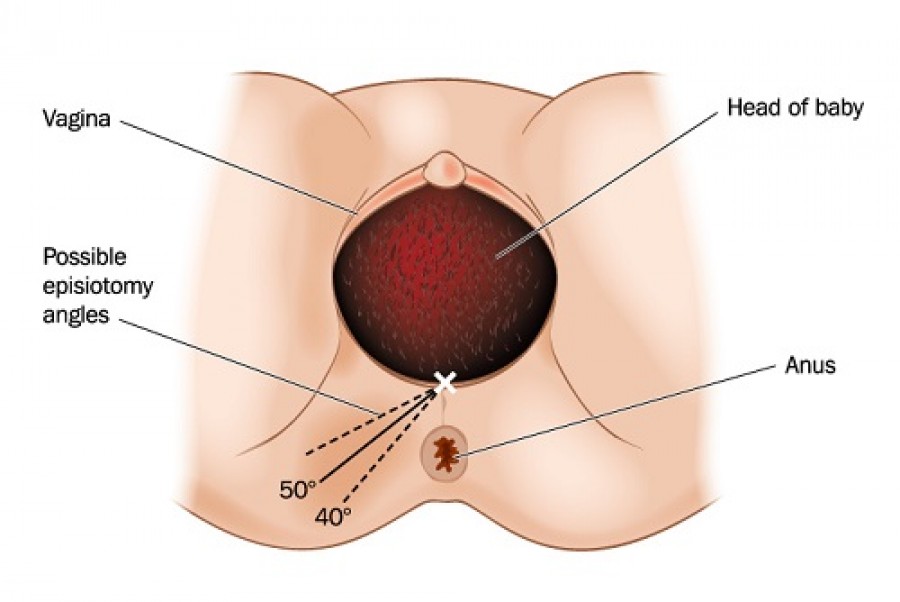Homebirth: Benefits, Concerns, Pros and Cons

For thousands of years, women have been giving birth in the comforts of their own homes. It is highly likely that even one of your parents or grandparents was delivered with the help of a midwife. In fact, childbearing women did not make the move from home to hospital until the 20th century! These days, there are many myths and misconceptions about labour at home. So, here’s everything you need to know to help you decide whether home birth is right for you.
What does a homebirth entail?
As the name suggests, homebirth is electing to deliver your baby in a non-hospital environment. It is also opting for the natural birth process; meaning without the assistance of anaesthesia, induction, and/or other medical interventions (such as stirrups, forceps, and ventouse—yikes!) all of which are typically found in clinical settings.
To elaborate: the labour process starts spontaneously without medical prompt (induction), continues without the use of medical pain-relief (epidural, nitrous oxide, etc.) and the baby is born without the aid of equipment or an unplanned Caesarean procedure.
In addition to the location swap, instead of an obstetrician, your baby is delivered by a midwife. A midwife is a highly-skilled and trained specialist who will educate and guide you through the process of your pregnancy, labour, childbirth, and post-partum. As with other health care professionals, midwives have successfully completed education programs in their field, and are registered and legally licensed to practice “midwifery”.
Am I a good candidate for homebirth?
If you are comfortable with having a home birth and are surrounded by your supporting partner, friends, and family, then technically you are a good candidate. However, certain medical ailments may prompt doctors and midwives from recommending home birth. Your pregnancy usually needs to be deemed low-risk, meaning there are little to no factors about your health that complicate the pregnancy and endanger you or the baby.
High blood pressure, anaemia, diabetes, and various other pre-existing conditions may categorise you as “high-risk” and disqualify you from homebirth. Twins or multiples, preterm labour or foetal mal-presentation could also lead you to hospital birth. When choosing a midwife, it’s important to discuss what experience she has with any of these factors and whether she has the skills to handle these or other conditions.

Reasons and benefits for home birth
Comfort of your own home
Factors of a clinical environment, such as bright lights, the often-shared accommodation, and even just the sheer amount of people -doctors, medical students, nurses, other patients- present during labour, may cause discomfort, anxiety, and possibly foster medical complications.
Many women choose home birth because they may feel safer, have more privacy, and can be surrounded by family and/or friends to support them through the birthing process. No strange nurses you don’t know doing routine vitals due to shift-change. In the comfort of your home, you can: rearrange furniture, have access to your favourite blankets and pillows, use aromatherapy, dim the lights if you want, stand up, sit down, take a shower, yell, sing, or play music— whatever you desire— because you are delivering in your own home!
Natural birth is likelier
If you wish to have a natural birth you may benefit from having your baby at home. More often than not, women who choose to give natural birth at a hospital will end up receiving medical intervention. This may be because, since medical advancement and the move to hospitals, childbirth has been increasingly seen as a clinical procedure, rather than the beautiful natural phenomenon that it is.
A clinical setting (think those bright lights and constant interruptions) will elicit a stress response in most women going into labour- similar to fight of flight. Labour may be prematurely over-diagnosed as slow or stalled (failure to progress). Whereas, you may be unnecessarily induced in a hospital; a trusting relationship with your midwife may alleviate your fears or anxiety during labour and help you successfully birth your baby naturally.
More personal and specialized care
If electing homebirth, you will choose a midwife well ahead of your due date. You will get to hand-pick your medical team; create and foster a relationship with them well before your baby is born; and this bond will continue into the postnatal care.
In a hospital setting, nurses and doctors may check on you intermittently and take vitals as needed; but they will still prioritize patients based on the severity of their conditions. With a midwife, you can be assured that you and your baby are the entire focus. With hospital-birth, there is no continuation of care between the nurses or midwives present in the delivery room and the post natal check-ups. Consider if having a more intimate and supported beginning into parenthood is important to you.
Some other reasons for homebirth are: lower risk of infection for both you and your baby; lower risk of C-sections and other often-unnecessary or pre-emptive procedures than hospital-elected births; no need to travel during labour (unless your midwife advises transfer); delayed cord-cutting or water-birth; and most women having had acquaintance with both options, report a generally more positive experience with homebirth.

Common concerns surrounding home birth
Is home birth safe?
One of the biggest reasons mothers-to-be forego homebirth is a concern for safety. There are many debates and varying reasoning surrounding the topic within the medical community, all of which is inconclusive to favour one method or the other. A lot of professionals will argue that there are risks and complications associated with home birth; which may include malposition (the baby turning the wrong way), haemorrhaging and lacerations, dips in the baby’s heart-rate, among others.
It is important to acknowledge that complications -prior or during labour- may arise regardless of where you give birth. Your midwife is trained to recognize if your labour becomes high-risk and the delivery is too unsafe to continue at home; and it is their duty to advise when transfer to hospital is required. They are bound by their registration and licences to carry out emergency measures as needs arise; your safety and that of your baby are their only priority. It is also noteworthy that the Australian College of Midwives supports homebirth for women with low-risk, uncomplicated pregnancies.
Will there be medical supplies?
One too-common of a misconception around homebirth is that there will be lack of medical supplies. For some reason, the idea of homebirth takes most people back to some frightening, archaic, primitive time; where the village witch-doctor delivers a baby in the bush. Fear not; your midwife will be well equipped with an oxygen tank, resuscitation equipment, IV supplies, medication for bleeding, and other instruments that they may need in the case of unexpected complications.
Pain management
Pain relief is another deterrent against homebirth for many women. Regular exercise and healthy habits such as balanced diet, and avoiding smoking and substances, will not only be good for general healthy in-utero development, but may assist with pain management during labour. Other methods to subside the pain can include breathing techniques, hot/cold packs, showering and immersion (bathe!) and support from your partner can help decrease labour pains. If it becomes too unbearable, you and your midwife can decide if transfer to the hospital is imperative.
What about clean up? Isn’t it messy?
We were not being cheeky when we said your midwife will be your best friend. Your midwife will be prepared with large, disposable, waterproof pads or sheets, to cover the birthing surface. Unless you request to keep the placenta and cord, they will also be taken care of.
Enlist the help of your partner or friends for filling up the birthing pool, if water birth is the method you choose, just as you begin labour. Whether purchased or hired, birthing pools come with all the bells and whistles— covers, liners, pumps and so forth. Needless to say, someone else will take care of the cleaning so you can focus on your newborn.
Dealing with possible complications
It is paramount to keep in mind that complications can arise during homebirth, as well as in hospital. Medical emergencies often discourage mothers-to-be from the home-birth process. Rest assured that if the birth becomes high-risk, your midwife will assess the situation and advise that the delivery must proceed to the hospital. Here are some hurdles you could encounter:
Blood loss (post-partum haemorrhaging)
Your midwife will have access to drugs that will help to expel the placenta. They can make the uterus to contract and also control bleeding. If the bleeding does not subside, your midwife will advise transfer to hospital. However, the risk of excessive blood loss after birth is actually lower with home births than hospital births, as hospital interventions such as induction and assisted delivery.
Looped umbilical cord
About one in three babies get tangled up in the umbilical cord. If the cord is not too tight, it can unloop and most of the time you can proceed with vaginal home birth. Your midwife will be monitoring your baby’s heart rate closely— an increased heart rate will show that the cord is tight enough to put the baby in distress and sometimes transfer to hospital will proceed.
Caesarean
An emergency caesarean is only needed if the birth has not progressed enough and the baby is in serious distress. These are possible but less likely, as majority of homebirths make the mother and baby more at ease than hospitals, and labour progresses naturally on its own without complications. Your skilled midwife will guide you through every step along the way.
Baby slow to breathe
Sometimes babies are slow to breathe after spontaneous natural birth. Your midwife will have equipment and be skilled to perform emergency resuscitation if it is required. Stimulating the baby by vigorously rubbing the skin; manual mouth and nose suction; and oxygen ventilation are ways to resuscitate a slow to breathe newborn. If at any point the situation becomes more complicated than your midwife is equipped for and transfer is necessary, the ambulance will have emergency equipment.
How to have a home birth?
There are two main ways to elect a homebirth in Australia. You may employ a privately practicing midwife (PPM) or link through a public hospital program. Both may be eligible to be covered under Medicare or through your own private insurance- the details vary depending on which state you live in and your insurance provider.
There are about 12 publicly funded homebirth programs around Australia, with the exclusion of Queensland, ACT, and Tasmania. However, this number is on the rise as home birth regains popularity. It’s advisable to confide in friends and family who’ve elected homebirth, or reach out to midwife communities for information—there are many available on social media platforms. Your doctor can also refer you to a midwife network or registry, or even personally recommend someone.
Not everything goes according to plan
All right, so you’ve created your perfect birth plan in your head, down to the temperature and the song playing in the room. But, sometimes, babies can be stubborn hotel guests who want to stay past their reservation. Other times, they may want to vacate early and ditch the bill. It’s okay. It’s important to also have a “plan b” in place, in case the delivery decides to go that way.
Registering at a nearby hospital in advance of the due date can be a reassuring for both you and your midwife. Many women report being satisfied that at least part of the birth process took place at home. What matters most is that both you and the baby receive the best medical attention necessary.
Everybody seems to have an opinion
You may be challenged by friends, family, and even medical professionals regarding making the decision about home birth. Someone knows someone who’s had a complicated or high-risk pregnancy and they will advocate that you absolutely must deliver your baby at the hospital or else. Do not feel pressured or discouraged. It’s all about what you think is best for you and your baby.
It is very important to consider home birth well ahead of your due date. Having the support of your partner in the decision is vital to having a successful non-hospital delivery. Barring medical reasons that may disqualify you from being able to have a home birth, the setting is entirely up to you and your partner.
Give yourself ample time to ask all the questions and make an informed decision.Whether give birth at home with your elected midwife; at a private birthing centre; or the public hospital— focus on the adorable little life you’ll be bringing into this world.
Most Viewed
-
5 Common Methods of Contraception
Last updated On by Percy Oad -
How to Cope with Male Infertility
Last updated On by Alina -
What is the Difference Between Primary and Secondary Infertility?
Last updated On by Madison -
How to start a child-free life after infertility
Last updated On by Jacinta







